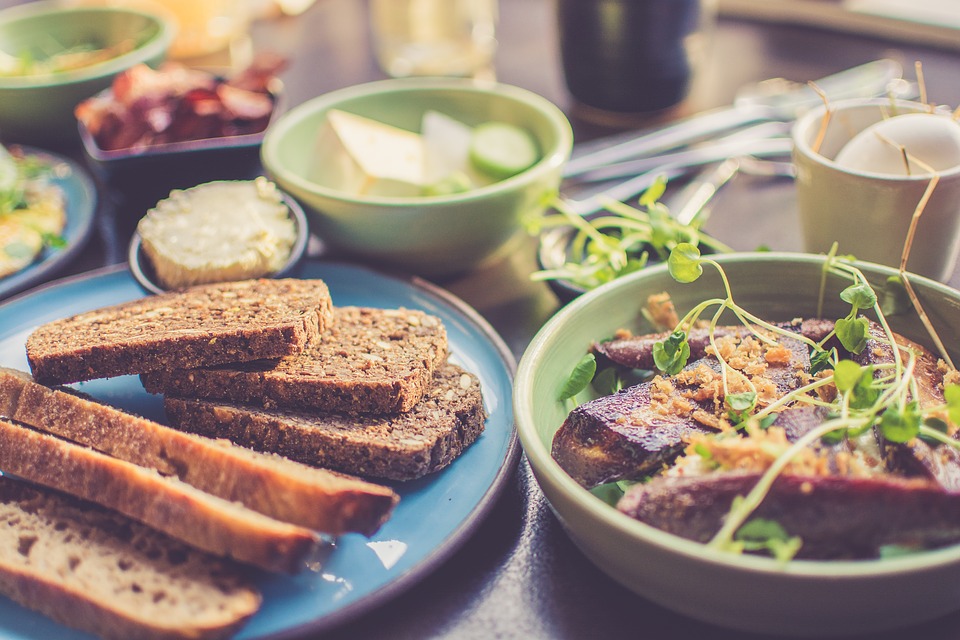
Eating healthy is important at every stage of life but it becomes even more important as you reach your ripe years. Healthy eating habits can have a strong impact on your improved mental sharpness, emotional balance, energy levels and immune response.
The good news is that regardless of your previous eating habits and age, it is never too late to turn the page and change your diet for the better.
It’s not just about food
As you age, eating well isn’t just about the variety and quality of your food. It’s more about getting the pleasure of every part of the process – grocery shopping, preparing meals and eating. Making it all a social event, going shopping with a friend or a family member, preparing meals together in the kitchen and gathering your loved ones for lunch or dinner can make everything significantly better.
Creating a healthy diet
The crucial factor in healthy eating is shifting your focus from processed food to wholesome, fresh ingredients that are as close to their natural form as possible. This is something that is taken care of by professional at every senior facility around the country but it’s also something you can do by yourself in your own home. It just might take some time and experimentation, but you will be able to find what works for you best.
Start by taking in plenty of fruits and vegetables and go for at least 2 or 3 servings per day. As for veggies, pick vegetables that are rich in antioxidants such as dark, leafy greens (kale, broccoli, spinach) and the colourful ones, such as carrots and squash. Make it about 2 to 3 cups a day.
Avoid the mistake of completely cutting out fat from your diet, but rather include healthy fats like such as omega-3 in your diet that will protect your body from diseases and also boost your brain function.
At an older age, protein and fibre are essential for maintaining good health. Protein helps in building your muscle, improving your resistance to anxiety and stress, but make sure you get healthy sources of it, such as fish, eggs, nuts and seeds, instead of bacon, hot dogs and salami. The role of fibre is to boost your digestion, but it can also lower the risks of stroke, heart diseases and diabetes. Aim at 21 grams of fibre a day if you are female, and for males, it's about 30 grams.
Finally, be cautious with carbs as well. Avoid processed sugar and white flour and opt for more fibre and nutrients that are found in whole grains. Simple carbs in white rice, refined sugar and white flour may give you more taste, but they will also spike your blood sugar and then lower it dramatically, leaving your feeling hungry very quickly.

And a few more tips
There are a few final and essentials ingredients you must make sure are always included in your daily eating regime. Staying hydrated is of utmost importance - especially, as you get older – since the sense of thirst weakens.
Take your vitamins, since, after the age of 50, they play a vital role in good health, as the stomach produces less gastric acid so it’s much harder for vitamin B to be absorbed. Make sure you take the recommended daily dose of B12 and also vitamin D, which is essential for maintaining healthy skin. And for healthy bones, include milk, cheese, yoghurt and various non-dairy products in your diet to give you sufficient calcium.
With the right choices and careful planning, you’ll be able to develop healthy eating habits and keep them throughout your older age, retaining a higher quality of life.
Guest post by Carolin Petterson
About the Author
Carolin Petterson is a Business Lady and contributor for number of high-class websites. She loves to share her experiences and talk about practical solutions, but her specialties are sustainability, sustainable business and green living.
You may also like
How to Address Changing Dietary Needs as You Age
Senior Health: 4 Smart Choices for Successful Aging
4 Tips to Improve the Well-Being of Your Elderly Parents
